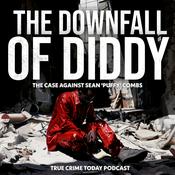Sean “Diddy” Combs walked into federal court expecting a redemption arc. He walked out with 50 months in prison, five years of supervised release, and a half-million-dollar fine — because, for once, the court listened to the women before the branding, the entourage, or the myth of celebrity invincibility. In this powerful Hidden Killers breakdown, Tony Brueski analyzes every moment of Diddy’s sentencing: Cassie Ventura’s devastating victim impact letter, the prosecution’s dismantling of his carefully curated image, and Judge Subramanian’s refusal to let fame sanitize violence.
We examine Cassie’s written account, a years-long timeline of coercion, control, surveillance, and manufactured fear. Then we dissect the now-infamous 11-minute video montage Diddy’s team played in court — a glossy PR reel meant to rehabilitate his persona, but one that collapsed instantly under the weight of the facts. Assistant U.S. Attorney Christy Slavik cut to the truth, calling him “a master puppeteer of his own image,” and the judge made it clear: “Good works can’t wash away the record of this case.”
But the fallout doesn’t stop at the sentencing. Tony’s commentary goes deeper — into Diddy’s reported panic over money, his fragile brand, and what appears to be a narcissistic inability to comprehend consequences. While he mourns lost deals and damaged prestige, survivors are still living the trauma he caused. Their sentence didn’t end today.
We break down the psychology behind his courtroom performance, the carefully staged apology, and why none of it convinced anyone. This isn’t injustice. This isn’t persecution. This is accountability — long overdue, culturally significant, and precedent-setting.
If you want the truth behind Diddy’s downfall — without spin, without celebrity gloss — this is the episode.
#DiddySentencing #SeanCombs #CassieVentura #HiddenKillers #CourtroomJustice #SurvivorVoices #CelebrityAccountability #TrueCrimePodcast #AbuseOfPower #TonyBrueski
Want to comment and watch this podcast as a video?
Check out our YouTube Channel. https://www.youtube.com/@hiddenkillerspod
Instagram https://www.instagram.com/hiddenkillerspod/
Facebook https://www.facebook.com/hiddenkillerspod/
Tik-Tok https://www.tiktok.com/@hiddenkillerspod
X Twitter https://x.com/tonybpod
Listen Ad-Free On Apple Podcasts Here: https://podcasts.apple.com/us/podcast/true-crime-today-premium-plus-ad-free-advance-episode/id1705422872



